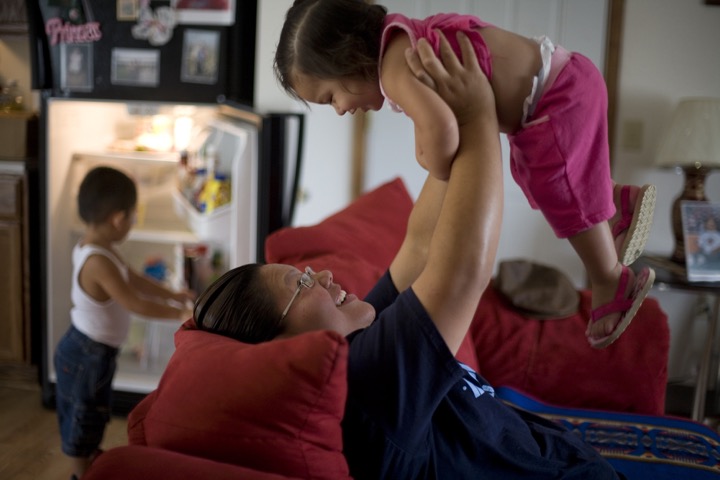Thursday, November 16 is National Rural Health Day, a collaborative effort to highlight the challenges faced in rural communities and to amplify the courageous, innovative work of rural health care providers, National Organization of State Offices of Rural Health, educators, and others working at all levels to improve the health of rural people and places.

The National Rural Assembly believes that when rural places are doing well, our country is stronger and our collective future is more sustainable.
Commitment to the health of rural people is one of the four pillars of our work, and we’re eager to amplify the good work that is happening to support healthy futures for rural communities.
That’s why today we want to acknowledge the leadership of the Robert Wood Johnson Foundation (RWJF) by looking across their current work and out to the field to learn about rural health in new and important ways.
As part of a larger rural learning effort, this summer RWJF surveyed, interviewed and convened over two dozen rural stakeholders, including Rural Assembly participants, for Rural Lessons for Building a Culture of Health, an active shared learning series to ensure that rural considerations deliberately inform the foundation’s and other funders’ work.
Facilitated by the Center for Rural Strategies, Rural Lessons engaged rural researchers, policy-makers and practitioners from a diverse set of sectors, geographies, and cultures to contribute to a more holistic notion of rural health and well-being. The discussion went deep, but four clear, powerful takeaways emerged:
- It’s time to invest in an evidence base to inform policies, practices and systems that fit rural contexts. To do so, public and private funders must better adapt their expectations for scale and success in rural communities and help create a more localized rural research infrastructure that engages diverse populations, new kinds of intermediaries, and varied local organizations in research design, objectives, and implementation.
- The narrative of rural America should acknowledge and elevate diversity and value. Narrative drives the resources and public support for the layers of work that lead to healthy communities. We must create opportunities to promote narratives of rural ingenuity; lift up messengers that reflect the diversity of rural America, including youth and people of color; and use tailored communications strategies that appeal to our varied community cultures.
- Building healthier rural communities requires attention to whole systems and not silos. Access to capital, housing, transportation, childcare, college readiness, broadband and other tools for economic opportunity are critical to building positive health outcomes across race, ethnicity and socio-economics. In tandem with health care initiatives, investments in community and economic development strategies like these will lead to enduring results.
- Re-imagine the role of health care providers and institutions and support systems in rural America. Rural health care providers play a dual role as both clinical care and economic drivers, and it is important that they embrace this dual role to create healthier communities. Key opportunities include home-based care and telemedicine approaches, transforming required health care community assessments into community investment plans, and investing in creative healthcare workforce development strategies.
Read More
- National Rural Health Day and #PowerofRural
- In Rural America, Community-Driven Solutions Improve Health
- Why Rural Health Must Matter
- The Advantages of Rural Healthcare
Undergirding these lessons is the undeniable need to strengthen local capacity and action to address racism, marginalization and historical community trauma in rural communities, even in communities where the hyper majority population is white. While the forces of systemic racism are often explored in an urban context, rural communities and organizations could use better tools and training to break through critical barriers to the long-term health and well-being of their communities.
There is an important role for foundations, researchers, policy-makers and practitioners in this arena. National Rural Health Day is a good opportunity to for all of us working in rural America to recommit ourselves to doing the deep, long-term, and necessary work that supports healthier, more equitable rural communities.







